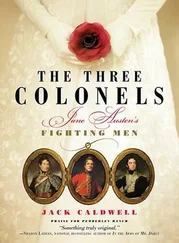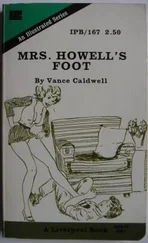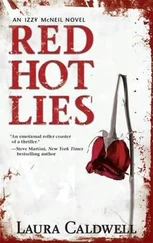When she woke a little after eight in the morning the sun was already warm. She needed to buy some provisions and make herself known in the port. She locked the door as she left, and Inka did not follow; she wondered if the cat would be there on her return.
She needed to buy writing paper, to preserve the illusion that she was an aspiring author or perhaps a poet. Pens and pencils too, and a rubber, as well as groceries to see her through the weekend; she resolved to keep an eye out for any local, and especially non-German, food.
It was a pleasant mile-long walk along the top of the cliff and the descent gave her different views of the village and port. There was activity at the harbour with local women lifting, inspecting, discarding or placing fish in their baskets, probably haggling over the price too. A variety of shops lined the seafront. There was a grocery, a cobbler, an undertaker’s sign at a joiner’s shop and a garage.
She entered the first shop and received a greeting with gentle but suspicious smiles. She gathered up a selection of vegetables and a pineapple, and a large notebook and some pens and pencils. She brought them to the counter and used sign language to indicate she had not finished. She found a wicker basket on one of the shelves and lifted it to show the shopkeeper. The assistant nodded her approval then left her counter and walked to the stationary section. She selected a small book and placed it in her basket; it was a Learn Portuguese booklet. She could not be sure whether it was a gift and paid what she was due for her purchases. Then she opened the book.
‘ Adeus e obrigado ,’ she read out. The assistant smiled and nodded, and Hilda smiled back. Next time she would be able to say goodbye and thank you without the aid of the book. She felt her language opportunity got off to a solid start.
She glanced at the shop window as she was leaving and saw a notice requiring no interpretation: a drawing of the church and an orchestra of violins, woodwind and brass. A concert. Under the drawing she saw Concerto de Advento 5 de Dezembro . She resolved to attend. She would enjoy being in the audience rather than performing.
A man came up behind her, his sleeves rolled up revealing a smearing of oil on his muscular forearm. Dishevelled, he obviously had neither combed his thatch of black hair that morning nor had he shaved for a day or two. His eyes were dark green, expressive and gentle. He pointed up the hill towards her cottage. News travelled fast, she thought, nodding to indicate that she did indeed live there. He pointed along the street and curled an index finger to encourage her to follow him.
It was broad daylight, and her instincts told her he was honest, so she did as he asked. When he stopped outside the garage his intentions soon became clear. Lying against the sidewall by a truck was a woman’s bicycle. He wheeled it towards her and held out his hand for her shopping basket. She handed it over, still a little puzzled, as he placed her purchases into the pannier on the front of the bike. He gestured that she should climb on to the saddle and she obeyed, although she had not ridden a bike since her youth in the Moray countryside, riding past the distilleries in the glens. Nevertheless, she circled the garage with only a wobble or two, and once out on the road her confidence soon grew. She returned to the garage and replaced the bike on its stand, then took out her purse, smiling. The garage owner shook his head. Hilda did not understand – then a tear rolled down his cheek and for a moment he could neither speak nor gesture. She was touched to see this strapping mechanic lay bare his emotions.
Another mechanic emerged from under a car on a ramp. He pointed to his wedding ring, then to his colleague, shaking his head sadly. It dawned on Hilda that the bike had belonged to the man’s wife who had passed away. He held the bike out to her again. She felt sorrow for him and she held out her hand to shake his. He made a show of wiping his hands on his trousers before clasping hers warmly, and the deal was sealed. She was now the owner of the bicycle.
‘ Adeus e obrigado ,’ she said, and moved her right leg over to the right pedal. Aware of the eyes of both mechanics on her as she rode down the street, she stopped once more at the first shop and bought some lard and treacle. She found some coarse oatmeal and paid for that too. She set off with the heavily laden pannier to see how far she could ride before she had to stop and push. She did not even get to the first bend. Despite her arduous training in both Scotland and Germany, it seemed an uphill bicycle ride stretched her muscles too much. The bike would be useful on the flat road above the village, but it would not be coming down the hill again. Back on the level, she climbed aboard once more and made use of all three gears to speed along the road. Her hair flowed behind her, and the sun and sea air brought a flush to her cheeks. She felt a freedom she had not experienced for some time. The peddling made her breathe hard and her heart pumped faster; she enjoyed her new transport, but it was harder work than she had anticipated.
Later that afternoon, she took a towel down to the beach. She counted a hundred and eighty-eight steps down the precipice, and then she was on the burning sand. She laid her towel down and sat gazing out at the sea. She was alone. It was as if October had announced the end of the summer season on the beach. After a while, she stood up and went to dip her bare feet in the waves. The water was deliciously warm and her feet sank into the sand. The sea was inviting and she longed for a cleansing swim, but she had no costume. She scanned her eyes along the cliff and the beach; she was still alone. She decided to risk it and took off her dress and laid it on the towel, then ran naked as fast as she could into the warm Atlantic water.
There was no need to splash around to warm herself as she used to on the beaches at Nairn and at Cuxhaven; here in Portugal the sea was warm. She swam for about twenty minutes, constantly checking that no one was spying on her from the grassy cliff top. She let out a squeal when some seaweed wound round her toes and came out dripping, her footsteps lasting only a moment in time on the sand. She dried herself vigorously with her towel then dressed in haste.
She breathed heavily as she climbed the steps up to the cottage again. That was the gradient, not the swim, she told herself. She felt invigorated, fresh and young again, but she dared not risk it again. She really needed to buy a swimsuit.
Back at the cottage, Inka was a welcome sight. Hilda was glad the little cat had settled but she had one more test. She made a cup of tea and while she waited for it to cool, she took out her oboe and began to play Santa Lucia . Inka looked up, unsure where the noise was coming from, and began to yowl. It looked as if the cat did not appreciate music. Hilda put the oboe down on her bed and went to drink her tea.
She poured a fresh cup and took it into the kitchen where she began to gather ingredients. She reminded herself not to bake anything German and decided on one of her mother’s specialities: traditional Lancashire Parkin. She stirred the ingredients together, spread the mixture into a baking tin and placed it in the oven. It would take an hour and ten minutes: plenty of time to check for messages from the States.
She set up the radio taking the usual precautions and sent Nancy a call sign. All well here… no news to give… any to receive?
Almost an hour later came the response.
Nancy was ready to transmit. 70… 40 then 60 and 42… x 50… 9.15.39 out.
Brevity was the name of this game. Hilda made little sense of the numbers, other than the date. She only hoped they would satisfy Berlin. She repeated the message to them. In particular, she needed to clarify the date; the American way of placing the month before the day might confuse Berlin. She immediately sent the figures to Berlin.
Читать дальше












